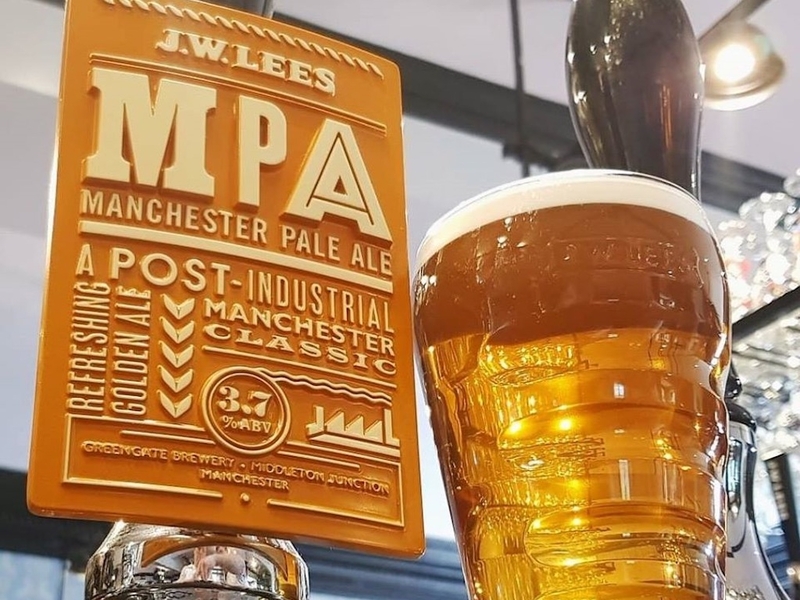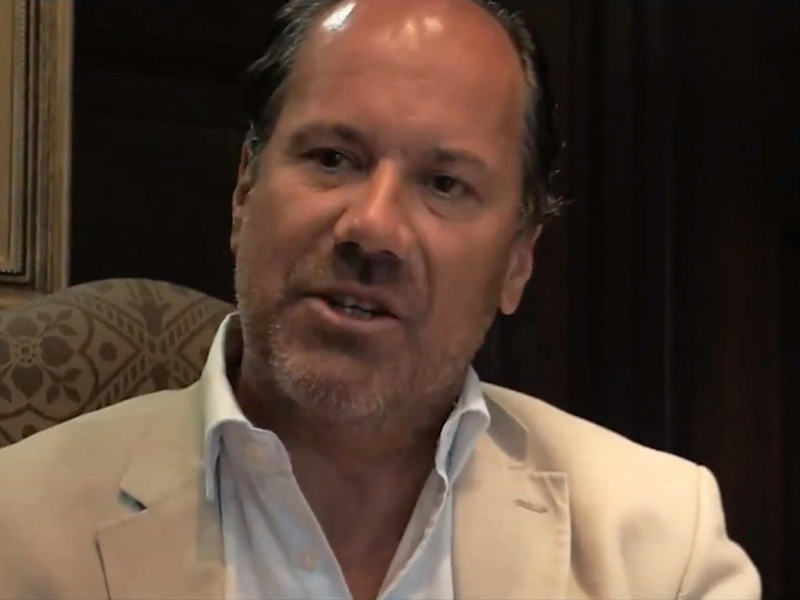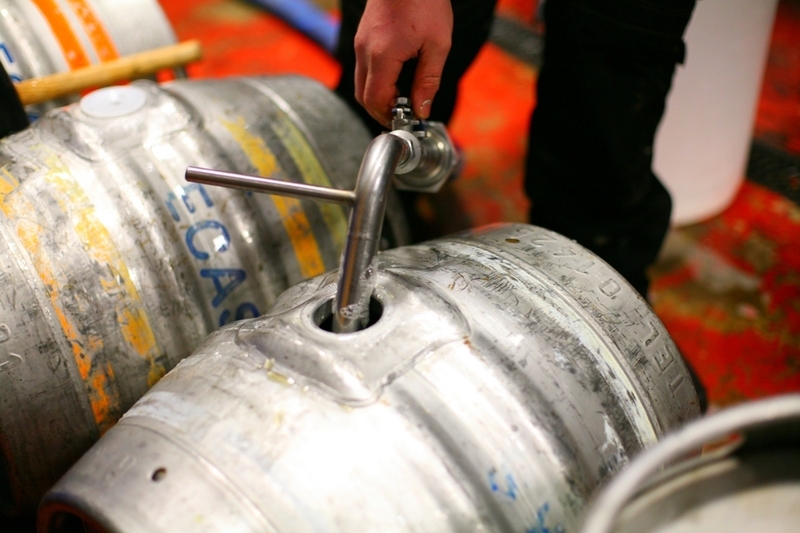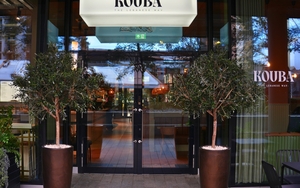Neil Sowerby talks to local brewers about an issue causing a froth in the brewing world
REMEMBER your first pint after lockdown eased? Table service on a street with cars given the boot. Refreshing conviviality restored at a careful distance. Hoppy, green shoots of recovery after a difficult time for brewer and drinker alike.
Stuck at home, you’d not gone short of an IPA or imperial stout thanks to some canny delivery reinvention. Maybe even splashed out on a tutored Zoom tasting to keep things afloat?
What’s happening now seems very unfair with no thought to the consequences for creative small brewers
As the weeks dragged by, you feared for the future of small indie operators marooned in aromatised rail arches – a vital component of Manchester’s thriving millennial hospitality scene, now mothballed.
Not that the Government gave much support for ‘wet’ bars and pubs compared with the VAT reductions and voucher scheme for restaurants. Now that same bunch of ditherers - not just this correspondent’s verdict - has blindsided our small brewers with a treasury threat to increase duty rates, costing some tens of thousands of pounds. Horrendous timing for cash-strapped small fry facing meltdown if a second COVID spike strikes.
While, on the horizon, lurks the chaos that might accompany Brexit.

Fuelling an outpouring of social media outrage from brewers and independent commentators, the proposed punitive reform of the Small Brewers Relief Scheme (SBR) has been lobbied by a coalition of middle-range traditional breweries determined to ‘level the playing field.’ These include Greater Manchester’s oldest (1828) brewery, JW Lees, and fellow real ale stalwarts Timothy Taylor and Harvey’s. Several high-profile beer commentators have threatened to boycott the above’s brews in protest. Some 400 smaller breweries – including many familiar names from our region – have signed an open letter to Chancellor Rishi Sunak contesting the changes lined up for 2022. For now, these are typically vague - but scary - bullet points.
SBR was launched in 2002 - by then-Chancellor Gordon Brown - to encourage growth in the sector. It gives a 50% discount on beer duty to breweries making under 5000 hectolitres a year and offers tapered relief up to 60000hl. That threshold will now be cut to 2100hl in 2022 - increasing duty rates for at least 150 breweries and costing them tens of thousands. The upper limit of tapered relief may jump to 200,000hl, giving a raft of larger brewers a tax windfall.

The Small Brewers Duty Reform Coalition wanted the lower threshold to be just 1000hl. It has been suggested the compromise 2100 mark was chosen by financial secretary, Jesse Norman, because it equates to 1000 pints a day – easier to explain to the public.
The coalition insists new measures will kick-start expansion for ambitious small brewers, rather than them staying in the current comfort zone of duty subsidy the bigger boys don’t share. But surely it will just inhibit future start-ups in an already hazardous economic climate? Critics say it's a cunning plan to crush competition.
What started as a Gordon Brown ‘Have a pint on us’ budget sweetener was the launchpad for the craft beer revolution of the past decade in Manchester and elsewhere. A wave of diversity and creativity with impressive beards and tats.
As you’d expect from the case studies below, the adjustments affect different breweries in different ways. William Lees-Jones, MD of JW Lees, and CAMRA’s John Clarke attempt to calm the ferment caused by this ill-timed announcement.

Jan Rogers, founder of Marble Beers
"We were already operating as a brewery when SBR arrived. It meant a lot to us. It allowed us to buy our first decent van for deliveries plus our first proper computer programme. We bought ingredients we hadn’t been able to afford before which enabled us to widen our range and create some of our now classic beers.
"Our current capacity is 4500hl. We’ve never felt the need to expand beyond this. We like the boutique art and crafts approach. It has irked us to see other larger brewers appropriate what we did first - using ginger and chocolate in beer - but we are proud to have led the way. Even when we opened the new brewery/taproom in Salford we didn’t significantly increase capacity. Our aim was to improve quality.
"What’s happening now seems very unfair with no thought to the consequences for creative small brewers. Lots of the breweries in the SBDRC are old school Tory. This move is to appease Tory financiers.
"If the changes are implemented we stand to lose £33K a year. The equivalent of having to shed a member of staff. Breweries four times our size will get £90K a year back.
"Would we have been wary of our big new investment if we’d known this was coming? Probably, but we battle on. Expansion in future will be in the hands of the next generation – my son, Joe."

Mark Welsby, Runaway Brewery
"SBR was absolutely key to us starting up back in 2014. Without that assistance lots of small scale ‘lifestyle brewers' wouldn’t be in the city. We couldn’t have afforded it and you wouldn’t have today’s diverse brewing scene. Duty relief gave us confidence to go ahead without traditional industry experience.
"We have kept to a production level hovering around the 1200hl threshold as a personal choice so the proposed changes in duty won’t hit us but we fear the impact on independent outlets for our beers and those of our peers. Part of the joy of contemporary creative brewing is collaboration – a strong sense of being in it together. What's happening now through the actions of larger traditional brewers leaves a bad taste.
"Many of the larger brewers joined the coalition in good faith but have since distanced themselves because this is not the best way to level the playing field.
"Traditional breweries have seen sales dwindle, their products becoming less premium. They believe some of the blame lies at the feet of this subsidy. But it was really about their own complacency in adapting to modern society. They - like it or not - are the establishment."

Will Evans, Manchester Union Lager
"We celebrated our first birthday in January. If it were not for relief on duty there’s not a chance we would have made it through the first nine months. We just about scraped through lockdown thanks to crowdfunding which enabled us to can our beers. Now we are torn about our plans to expand with new tanks. We presently produce 2000hl and our growth plan is to hit 3000hl. The worry is the debt we would accrue for years ahead if we proceed.
"The duty relief allowed us to compete in the field we had chosen – lager. We are up against premium international brands such as Peroni. We are able to compete on price at £5.60 a pint. With full duty we’d have to charge an uncompetitive £6.80 or reduce the quality of our product. We can’t hit the normal price levels craft beer can command because of the perceptions of our particular market. We are back up to pre-COVID brewing levels but the future looks uncertain."

Paul Jones, co-founder Cloudwater Brew Co
"When we started up five years ago, the relief made it possible to experiment with new beer styles and create the kind of beers that have made our reputation. Tighter margins would have meant we had to play it safe. If the duty relief changes, it will be very difficult for new breweries to go down a specialist niche route. It’s terrifying.
"We were also able to pay the staff in those early years a proper wage of £25K - above the average. This year we’ll expect to brew 7000hl, down from last year’s 9600hl. It was only last year we started to make money. We started the year with £170K in the bank before the pandemic arrived. Contrast with the larger brewers seeking the duty relief changes. Go to Companies House and tot up what ten of the companies in the coalition made last year – £75 million profit together. They are woefully out of touch if they think we are making real money. Few small breweries are in profit.
"We have sung the praises of traditional cask beers but never benefited from commercial opportunities. These brewers’ allegiance is with the global brands that share their tied houses’ taps with their own beers. No sign of indie craft guests. They are out of touch. I think protectionism is their preferred strategy over evolution and progression."

William Lees-Jones, MD, JW Lees Brewery - a member of the Small Brewers Duty Reform Coalition
"It’s a tragedy that the current debate is setting brewers against brewers. You should be able to have an intelligent discussion but agree to differ. The timing is terrible. This is far from the final decision but comes at a time when we are faced with so many challenges connected with the pandemic. The latest to drop in our lap is calorie labelling of dishes on menus.
"There’s a world of stuff making people angry. Remember, the government hasn’t announced the detail. It will be concluded in the autumn. The treasury have been consulting on this for two years. The bigger picture is the alcohol duty review which is also facing us in the autumn. Unfortunately, when Gordon Brown introduced the subsidy he got it wrong. He didn’t create an incentive, he created a tax loophole.
"The brewing industry shouldn’t, duty-wise, be treated any differently to other businesses. Pollen, a terrific small bakery that’s one of the attractions for folk to settle in Ancoats, pays the same premiums as Warburton's. The same applies to Manchester Gin – they pay the same amount as Gordon's.
"Remember when the government subsidised solar panels? They have now reduced it because manufacturers have become more efficient. Things have to be reviewed over the years.
"The relief was a really good catalyst for the growth of small brewers. Many, such as Cloudwater and Runaway, are great businesses - competitive in our sector. But the time has come for a flatter rate of duty. Financially, it makes no difference to us. We sit above the ceiling. From a Lees perspective, healthy competition is a good thing."

John Clarke, CAMRA activist and editor of Opening Times
"I can, to some extent, understand the upset this has caused. I am also conscious that, at the moment, all we have is little more than a set of bullet points.
"There is no information on exactly who will be affected and to what extent, how the scheme will operate, how and to what degree it will taper, whether there will be any form of transitional provisions for those caught in the crossfire between 2100hl and 5000hl and, not least, what the outcome of the consultation may be.
"While this does add another layer of worry and uncertainty at the door of brewers who can well do without it, there are too many unknowns at the moment for me to spit too many feathers."
Two stalwarts of the Manchester beer scene have charted the threat to Small Brewers Duty Relief – a complex and divisive issue. To grapple with what it entails, check out the blogs of Steve Dunkley - whose Beer Nouveau brewery was one of the Piccadilly Beer Mile pioneers - and Jim Cullen, organiser of the Independent Salford Beer Festival and blogger at Beers Manchester.
Coalition brewers have issued justifications for their pursuit of reform. Here is the statement from Keighley cask ale champions Timothy Taylor.















